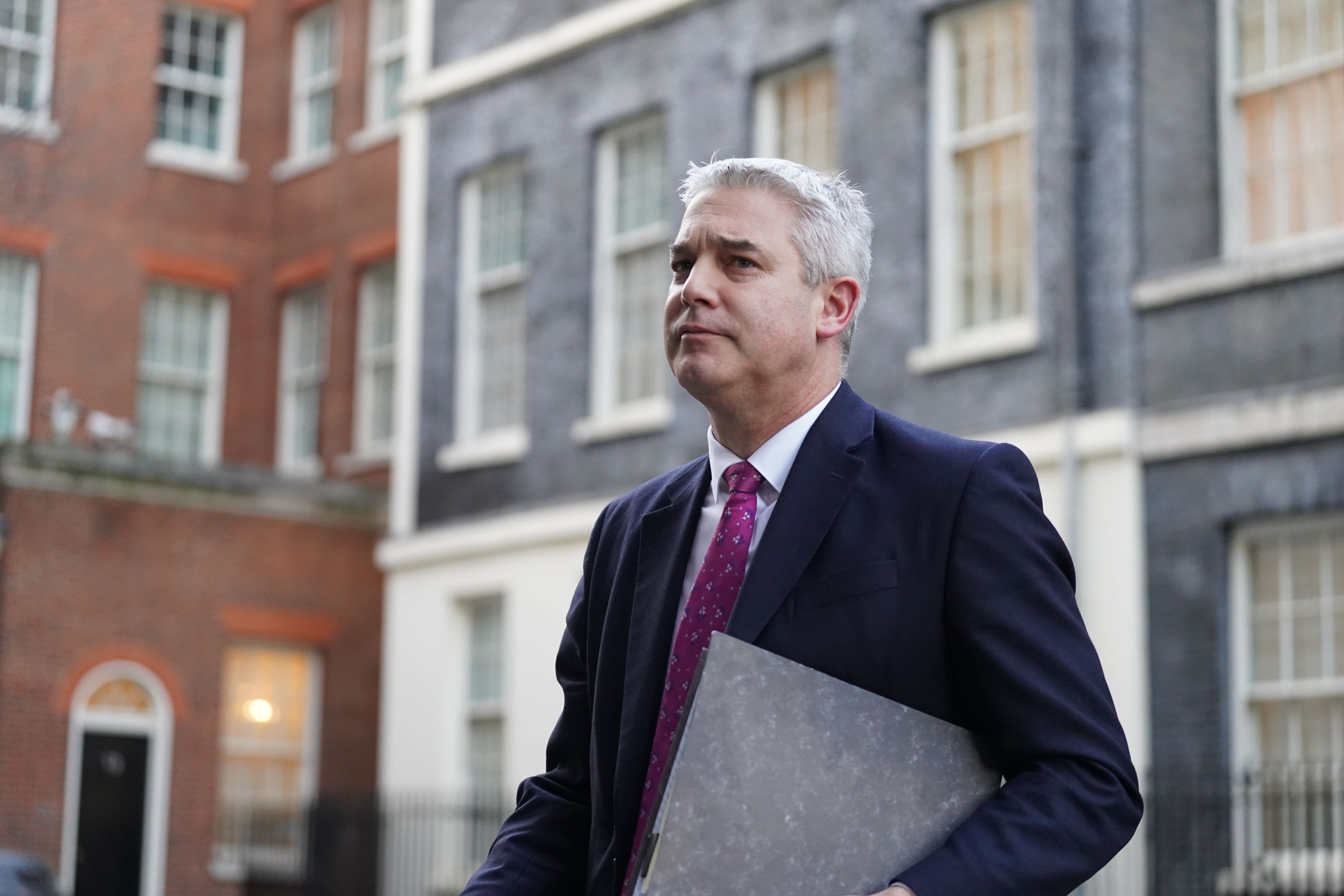Ministers insist junior doctors must call off strike action before pay talks
The British Medical Association had suggested a credible pay offer could result in the walkout being suspended.

Your support helps us to tell the story
From reproductive rights to climate change to Big Tech, The Independent is on the ground when the story is developing. Whether it's investigating the financials of Elon Musk's pro-Trump PAC or producing our latest documentary, 'The A Word', which shines a light on the American women fighting for reproductive rights, we know how important it is to parse out the facts from the messaging.
At such a critical moment in US history, we need reporters on the ground. Your donation allows us to keep sending journalists to speak to both sides of the story.
The Independent is trusted by Americans across the entire political spectrum. And unlike many other quality news outlets, we choose not to lock Americans out of our reporting and analysis with paywalls. We believe quality journalism should be available to everyone, paid for by those who can afford it.
Your support makes all the difference.Talks on junior doctors’ pay will only be held if the British Medical Association (BMA) calls off its planned strike, the Government said.
Patients face disruption from a four-day strike next week as medics in England walk out in the bitter pay dispute.
The BMA had suggested that a “credible” offer from Health Secretary Steve Barclay could result in the strike action being suspended.
But the Department of Health and Social Care (DHSC) insisted the BMA had to call off the strike for any negotiations to take place.
Health leaders are bracing themselves for the most significant strikes in a decade with many aspects of patient care resting on a knife-edge
The impasse means the walkout now appears likely to go ahead, putting strain on NHS services.
The doctors’ union said it had received a letter from the minister on Wednesday saying he was serious about “rapidly settling this dispute”.
The BMA responded by saying a credible offer, one that indicates the Health Secretary “really is serious” about pay restoration and willing to negotiate to resolve 15 years of “pay erosion”, could stop the strikes which are due to start on Tuesday.
The co-chairs of the BMA junior doctors’ committee, Dr Vivek Trivedi and Dr Rob Laurenson, said: “Even at this late stage we stand ready to consider any offer the minister tables – which, if credible, could mean the strike action being suspended – and we urge him to do so.
“We say to him, ‘Put an offer on the table today, a credible one that truly demonstrates you are serious about addressing junior doctors losing more than 26% of their pay in real terms. An offer which can form the basis of negotiation and lead to the suspension of next week’s action’.
“It is not too late to avert four days of strike action, but the onus is on Mr Barclay to do more than write letters and talk about a desire to ‘rapidly’ end this dispute.”
A DHSC spokesman said: “Four days of strikes by junior doctors will risk patient safety and cause further disruption and postponed treatments.
“The BMA’s demand for a 35% pay rise is unreasonable – it would result in some junior doctors receiving a pay rise of well over £20,000.
“We have been clear negotiations will only be able to progress if strikes are postponed and the BMA demonstrates it is prepared to move significantly from this ask.
“We will also not negotiate in public – talks need to be private with both parties respecting the confidentiality of the process, as has been the case with other health unions.
“We want to find a rapid solution which balances fairly rewarding junior doctors for their hard work with meeting the Government’s ambition to halve inflation.”
Health leaders have warned patient care “rests on a knife-edge” ahead of the strikes and said they are working at “full pelt” to make sure emergency and other life-saving care can continue safely.
They warned that “huge uncertainty“ remains over the level of cover they will be able to secure in time from other professionals to fill key shifts.
Even providing “basic patient safety” is a worry for some, said the NHS Confederation.
Dr Layla McCay, director of policy at the NHS Confederation, said: “Health leaders are bracing themselves for the most significant strikes in a decade with many aspects of patient care resting on a knife-edge.
“They want to send a reassuring message to their local communities but they are deeply concerned about not being able to provide safe care as they cannot rely on the same staffing levels as they have done with previous strikes.
“They are doing their best to mitigate any risks, which unfortunately means making the difficult decision to cancel more planned treatments and appointments than they would have liked to have done so that they can prioritise the most life-critical services.
“The NHS will be open for business but this will not mean business as usual.
“We urge the Government and trade unions to do everything they can to call off these strikes and to step up public communications urgently so that people who need healthcare understand what is available and at stake.”
The four days of strikes will come immediately after the Easter bank holiday weekend.
They will run from 6.59am on Tuesday until 6.59am on Saturday April 15.